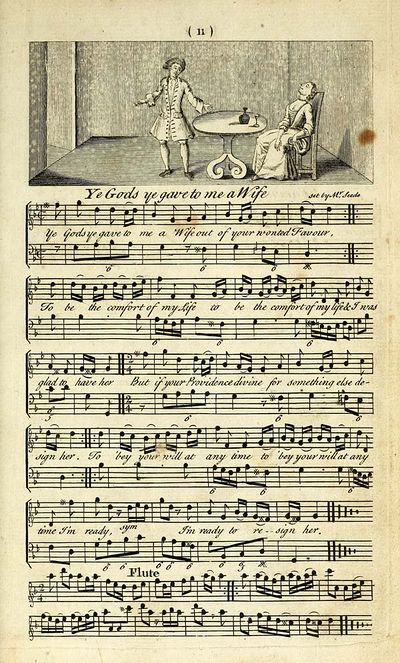Annotation:Ye gods ye gave to me a wife
X:1 T:Ye Gods ye gave to me a Wife M:C| L:1/8 B:David Young – “A Collection of Scotch Airs with the latest Variations” (AKA - The B:McFarlane Manuscript (c. 1741, No. 38, p. 75) F: https://rmacd.com/music/macfarlane-manuscript/collection/pdfs/ye_gods_ye_gave_to_me_a_wife.pdf N:The Society of Antiquaries of Scotland K:Gmin d|gddc BA/B/ GA|BG/A/ Bc d d2::B/c/|dB/c/ de fF2 G/A/|BG/A/ Bc dD2d| B(A/G/) AT^F G3:||:g|gddc BA/B/ GA|BG/A/ Bc d d2::B/c/|(d/c/B/c/) (d/c/d/e/) fF F(G/A/)| (B/A/G/A/) (B/A/B/c/) dD zd|gd z/d/e/d/ gd zd|B(A/G/) A^F G G,2:|]

Ye Gods, ye gave to me a Wife,
Out of your wonted Favour,
To be the Comfort of my Life,
And I was glad to have her.
But if your Providence divine,
For greater Bliss design her,
To obey her Will at any time,
I am ready to resign her.
